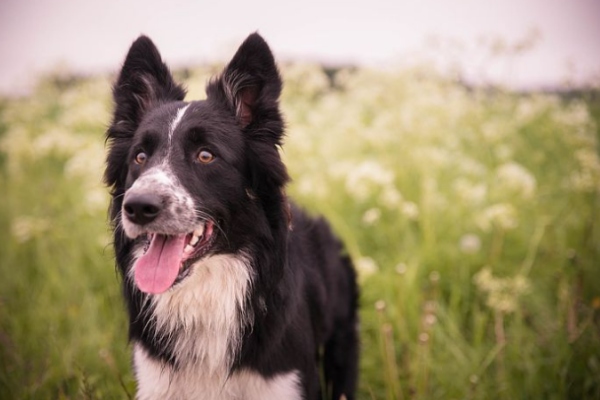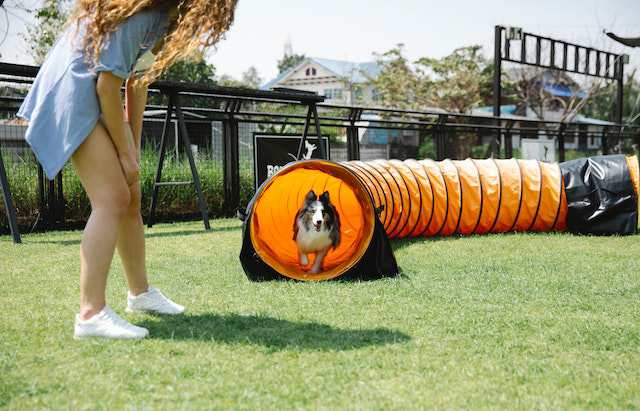9 Common Pomeranian Behavior Issues & Helpful Tips

As cute as Pomeranians are they still have some behavior issues associated with them so let’s discuss Pomeranian behavior issues you should know before getting one.
In this post, we will outline and discuss some of the most common Pomeranian behavior issues associated with them, and outline some tips for dealing with these issues.
At first, your cute Pomeranian puppies may be fun and entertaining but, lack of early socialization and obedience training gives birth to a lot of Pomeranian behavior issues you will see in this post.
Pomeranian Behavior Issues
The Pomeranian is a popular and attractive little dog breed, but it has a few behavioral concerns such as begging, separation anxiety, excessive barking, chewing, and snapping.
The following are some of the most prevalent Pomeranian concerns to be aware of:
1. Pomeranians are picky eaters
While this may not be a problem for owners who are living above average, it is a problem for those around or below average.
Some Pomeranian pups have a good idea of what they want to eat, but they won’t tell you because they can’t communicate.
Revolving taste buds are common in Pomeranians, causing them to take only a few bites or refuse to eat at all.
The majority of owners are concerned about this, although it is a manageable tendency.
A Pomeranian could be able to sense a lack of protein in a dish and refuse to eat it and this can be frustrating.
Pomeranians are notorious for being picky eaters since they are aware that eating the wrong food may bring them pain.
Helpful tips
- Any meal that is proven to be successful should be kept.
- If necessary, make the dish more appetizing.
- Consider what you’re putting on the table.
- Maintain a timetable that suits your needs.
- Switching to a grain-free choice is a good idea.
- Use the smallest serving sizes possible.
- If you have any medical concerns, speak with your veterinarian.
- Stop giving your Pomeranian too many different types of food at once.
2. Excessive barking
Pomeranians are a naturally non-aggressive little dog breed that has never been known to attack other dogs or children since they were created to be human companions.
Aggression in Pomeranians can be caused by a variety of factors, including poor socialization, fear, anxiety, possessive behavior, and a lack of training or behavioral guidance on the side of the owner.
Pomeranian dogs can bark excessively, and one of the best methods to prevent excessive barking is to properly socialize your Pomeranian as soon as possible.
Helpful tips
To get your dog to quit barking, teach him a new behavior. Select a spot that can be seen from the front entrance.
Train them to lie down and stay put when you say, “Go to your place.”
This will keep them occupied as they wait to be greeted and will keep them calm.
Bring a reward at the door and invite a friend in, but only open it when your dog is calm.
They’ll learn to relax if they desire that treat if you do it frequently enough.
3. Separation anxiety
When Pomeranians are away from their owners for an extended period of time or are not left alone unsupervised for an extended period of time, they develop separation anxiety.
Nipping, barking, self-isolation, digging, and chewing are all signs of separation anxiety in Pomeranians.
Leaving a Pomeranian alone at home causes separation anxiety, which may be addressed by providing a companion or using effective crate training.
Helpful tips
- Make an appointment for your pet to see a behaviorist.
- Think about hiring a dog sitter.
- Before you go, teach them to leave you alone at home and to stay a safe distance from you.
- Make an anti-anxiety product buy.
- You should bring in a second pet as soon as feasible.
- Make sure the puppy has plenty of new, soft, and interesting toys to keep him engaged.
- Give yourself plenty of time to rest, relax, and engage in physical activity.
- Start your dog on a fresh, suitable crate training program.
- Consult your veterinarian about anti-anxiety medicine.
4. Destructive chewing
Chewing is a natural tendency for all dogs, but if the dog chews on items that aren’t supposed to be eaten, such as shoes, furniture, or electrical wires, chewing may rapidly become a problem.
To keep your dog busy and encourage healthy chewing, provide plenty of toys and chews.
Objects that you don’t want chewed can be removed or sprayed with Bitter Apple, a material that leaves a bad taste in their mouth.
When bored or lonely, Pomeranians chew incessantly.
Helpful tips
- Purchase a huge quantity of chewing toys.
- Spraying furniture is a good idea.
- There is a need for more mental stimulation.
- Give your Pomeranian more exercise chances.
- It’s a good idea to puppy-proof your home.
5. Little difficulty in house-training
The act of teaching a dog to defecate outdoors or in a specified location within the house instead of following its natural propensity of pooping everywhere is known as housetraining.
Pomeranian housebreaking is notoriously difficult. Expect to practice in sessions for two to three months.
Even after you’ve accomplished toilet training, your Pomeranian may make blunders. However, once you’ve finished, you may expect to see a good dog.
This is one of the most common Pomeranian behavior difficulties. When you have a Pomeranian, try to pay attention to house training.
Helpful tips
- Don’t overfeed your Pomeranian during housetraining.
- When you’re not around, don’t keep your Pomeranian on a leash during the house-training procedure.
- Potty training a Pomeranian should start the moment he or she arrives at your house.
- Provide your Pomeranian with a variety of places to discharge himself during the house-training process.
- Take your Pomeranian to the bathroom periodically before bedtime throughout the housetraining process.
- If your Pomeranian commits a mistake, do not scream or strike him.
- Make no substantial modifications to your Pomeranian’s daily routine during the house-training procedure.
- Feed your Pomeranian at the same time and in the same manner throughout the housetraining procedure.
- During and after the housetraining procedure, make the toilet as accessible as feasible.
6. Shyness
Pomeranians are not immune to shyness. To identify whether a Pomeranian is shy, it is required to check the dog’s ears.
The ears of a shy dog will tilt back against its skull.
Excessive panting in the dog when surrounded by new individuals, as well as pupil dilation, are both signs of shyness.
To overcome his shyness, it is vital to teaching the dog that there is nothing to be afraid of.
Helpful tips
Never pay attention to a dog’s fearfulness, and never comfort a timid dog.
Praise and attention should be lavished on the dog when he accomplishes something new and courageous.
To guarantee that the Pomeranian is adapted to new people and situations, take it to different regions and socialize it with people and animals.
This socialization will surely help the dog overcome his or her fearfulness.
7. Begging
Pomeranian’s enticing smiles, which promote begging, may be tough to resist as the owner.
Begging is bad behavior, yet many dog owners promote it by feeding their dogs while they eat.
Weight gain, digestive problems, and even persistent diarrhea are all potential side effects.
The most basic strategy for preventing this obnoxious behavior is to never endorse it in the first place.
Helpful tips
- Don’t look at the Pomeranian when he’s begging.
- Don’t talk to the Pomeranian when he’s begging.
- Twist and turn away if he tries to jump on you.
- Feed your Pomeranian and eat your own supper at the same time.
- Teach your dog something else to do instead of sitting at the table asking for food.
- Put your Pomeranian in his box or room while you eat.
- Place the bowl near the table when it’s time to eat, so your dog thinks he’s dining with you.
8. Play aggression
Play aggressiveness is one of the most well-known and well-known sorts of Pomeranian behavior difficulties.
Pomeranians show their play aggressiveness in a variety of ways, including barking, snarling, lunging, and biting while playing.
They are frequently fixated on chasing the ball or continue to play despite knowing when it is time to quit.
It is quite prevalent in Pomeranians since their owners always accept or encourage it because it is the correct thing to do.
Pomeranian plays aggressiveness develops over time and, if left handled, can lead to severe problems with both your children and your dog.
Helpful tips
- Begin by gently playing with your Pom.
- Learn how to teach your Pomeranian to control his or her excitement.
- Your Pomeranian’s socializing should begin at a young age.
- Make plans to play with other puppies as well as well-behaved adult dogs who can teach your Pom good manners.
- You may lessen your Pom’s hormone-driven aggressiveness by neutering or spaying him.
- When your Pom engages in enjoyable play, praise him or her.
- Add a toy to the mix, and when a line is crossed, take your Pom’s attention away from the game.
- Stay off the floor if you have a rowdy Pom.
- Teach tactics and expectations for compliance.
- Positive reinforcement is the only way to progress.
9. Following you around
While this may be a nuisance for some, others may find having their Pomeranian follow them around the home seeking love entertaining.
Pomeranians are no exception when it comes to barking, biting, or nipping to attract attention.
A Pomeranian is not for you if you don’t want a cuddly dog or one who requires constant care.
Pomeranians were designed to be companion dogs that spend their days with their owners.
Helpful tips
- To keep them occupied, give them more fascinating and engaging toys.
- Make a method for them to follow so that they may get what they need without having to ask you or while you are away.
- They won’t follow you around like flies if you keep them busy with a range of activities.
How to discipline a Pomeranian
Here are the common ways to discipline a Pomeranian:
- Develop a “Alpha” mentality from the start.
- Insist on proper behavior.
- To communicate, use good energy.
- Learn how to behave like an alpha male.
- Be consistent and fair when it comes to correcting incorrect behavior.
- Be consistent and precise when it comes to regulations.
- Teach the principles of obedience to your children.
- Learn how to regulate and control the amount of time your Pomeranian spends eating.
- Always give your Pomeranian a job to do.
- Positive reinforcement should be used.
- Submissive behavior should be rewarded.
I hope you now understand more about Pomeranian behavior issues! Leaving your Pomeranian alone for too long can cause unnecessary behaviors issues, read more about leaving Pomeranian alone.
Read more about: 11 Signs Of Pomeranian Dying & Ways To Console Them.

![Food Aggression in Dogs [Causes, Signs & Fix] Food Aggression in Dogs](https://petcreeks.com/wp-content/uploads/2023/10/pexels-vlada-karpovich-6801934.jpg)




